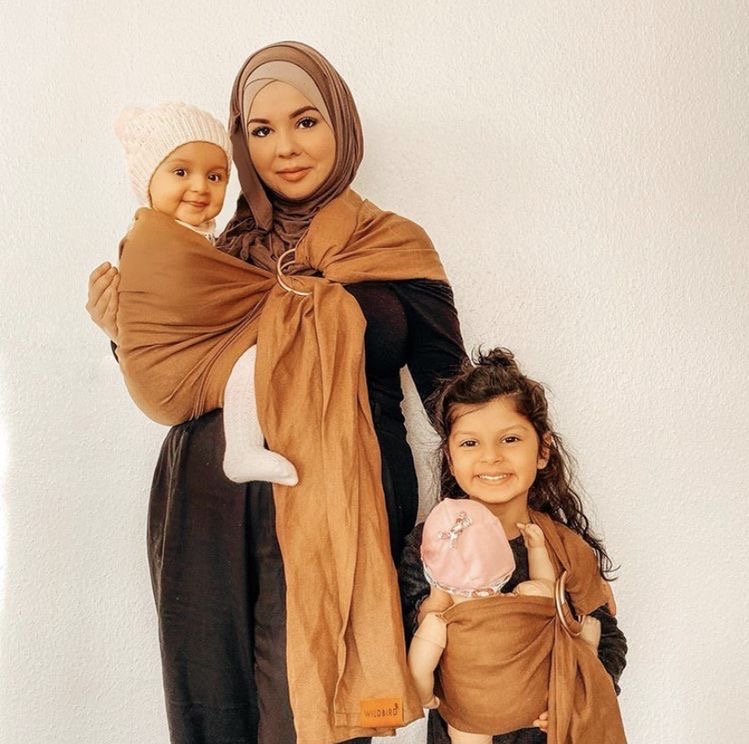I hissed in exasperation as a thread caught my eye on Twitter. A man was advocating for women’s right to wear the hijab. And I was pissed! This was the same man notorious for vilifying feminists and women’s rights activists, condemning them to hell. The hypocrisy was staggering. Just below his tweet, a video emerged of an Iranian man in Qom, one of Iran’s most conservative cities, attempting to detain a woman for improper hijab. A wry smile spread across my face, masking the simmering anger and frustration at the misogyny and hypocrisy that plagues our communities.
As a Muslim woman who wears the hijab, I’m disheartened when Muslim men selectively champion our right to wear it. Where’s their outrage when we demand socio-economic and political equality? Why don’t they advocate for our self-determination, full agency, and justice? It’s hypocritical for men who view women as less than human, seeking to control our minds and bodies, to suddenly defend our “right” to wear the hijab. For centuries, Islamic law has deviated from its original principles, erasing Muslim women’s legal existence and reducing us to mere appendages of the men in our lives.
In the Quranic chapter where moral guidelines for women and men are established, the Prophet Muhammad (PBUH) received divine instruction to address believing men and women. They were enjoined to modestly lower their gazes and protect their private parts (Quran 24:30). Furthermore, women were specifically instructed to extend their headscarves, already a customary part of the Arab women’s attire, to cover their necklines and bosoms, revealing their charms only to their immediate relatives, children, women, and slaves (Quran 24:31). Notably, the headscarves mentioned in this verse were pre-Islamic garments worn by both Arab men and women, typically covering their heads and trailing down their backs, thus exposing their necklines and partially revealing their breasts. The Quranic injunction therefore encouraged women to utilize their existing head coverings to conceal their necklines and bosoms, promoting a spirit of modesty and humility.
These verses of the Qur’an were addressed to women, believed to have full agency and freedom of choice regarding whether or not to follow the Qur’anic injunction. Such was the case of Fatima Al-Kubra, a great descendant of Muhammad (PBUH), who refused to cover her hair along with the noblewomen of her time. A piece of clothing, which was initially prescribed for the benefit of women; an expression of dignity and freedom of choice became unfortunately manipulated and politicised over time to control women’s bodies.
Centuries of Islamic law legislations ensured that one set of laws applied almost entirely to women, and was aimed specifically at muting women’s voices. The scholars reduced women to sexual beings and held them responsible for controlling men’s lusts. They considered women weak and prone to moral weakness and sin. The solution, therefore, was to seal women away from the view of men. Women could be harshly humiliated simply for talking too much or too publicly or in a tone of voice that seemed grating or soft. The dress code prescription became expanded and more stringent for women. It became the responsibility of men to impose the hijab on women to ensure that they fell in line. If a woman got harassed, attacked or raped, it was because she wasn’t obeying the law by either covering up completely or staying in her home.
In a world where the hijab is still being used to confine many women to their homes, restrict them from participating in the public sphere, and deny them their socio-economic rights, I cringe when Muslim men blindly ignore all the issues bedevilling Muslim women today and aggressively advocate for our “right” to wear the hijab. I find it hypocritical and insulting. A large number of Muslim men who advocate for women’s right to wear the hijab do not think of the hijab as a right. They are not fighting for the Muslim woman’s right to self-determination and freedom of choice. These men show harsh judgment and intolerance towards Muslim women who do not wear Hijabs. Their insincere agitation is an extension of their misogyny which stems from the belief that women are the source of evil and temptation, and should therefore be sealed away from the public sphere. They believe that men’s salvation lies in curtailing the power that women hold over them. What they are, indeed, fighting for is their right to impose the hijab as a political tool of power and control.
If these men are indeed sincere about their agitations, they should invest the same energy into fighting the oppression, inequality and injustice that are rife against women in the Muslim world. They should also respect the choices of those women who choose not to wear the hijab. Until then, we do not need them to fight for us.




